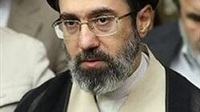The October 6, 1973 War: How Arab Unity Restored Egypt’s Dignity

On October 6, 1973—Yom Kippur in Israel and Ramadan
across the Muslim world—the Egyptian army launched a daring surprise attack
across the Suez Canal. In a few dramatic hours, President Anwar Sadat’s forces
breached the formidable Bar-Lev Line, long regarded as the unassailable symbol
of Israel’s occupation of the Sinai since the Six-Day War of 1967.
The move shattered Israel’s aura of invincibility and
transformed the strategic balance of the Middle East. For Egypt, it was not
only a military triumph but also a psychological and political resurrection—a
moment of redemption after the humiliation of 1967.
An Unprecedented Wave of Arab Solidarity
While Egypt led the charge, the October War also became a
showcase of Arab unity unseen since the 1950s. As Syria struck Israeli
positions on the Golan Heights, Arab nations mobilized in coordinated support:
Iraq sent armored divisions and fighter squadrons to aid
Syrian forces.
Algeria deployed aircraft and tanks to reinforce Egypt’s
front.
Morocco and Jordan dispatched ground troops.
Saudi Arabia and the Gulf monarchies financed the war
effort, culminating in King Faisal’s oil embargo, which sent shockwaves through
Western economies and redefined global geopolitics.
For the first time in decades, the Arab world acted with
a shared purpose—defending sovereignty and restoring collective dignity.
Memory Preserved Through Film
That spirit of unity finds new life in the short
documentary “And We Triumphed,” directed by Tamam Younis. Narrated by Egyptian
actor Maged El Kedouani, the film blends rare archival footage with personal
reflection—fighter jets slicing the sky, young soldiers crossing the canal, and
solemn faces of conscripts poised on the edge of history.
The voice of Israeli Defense Minister Moshe Dayan echoes
hauntingly through the film: “Every man for himself—otherwise our forces will
be destroyed.” The documentary also pays tribute to heroes such as Mohamed Taha
Yacoub, known as “the icon of victory,” and actor Lotfi Labib, a veteran of the
war who recalls that defining moment with undiminished emotion.
More Than a Military Victory
Beyond the battlefield, the October War transformed
Egypt’s national identity. Its army, once demoralized, was vindicated; its
diplomacy, reinvigorated. In the years that followed, Cairo leveraged its
military success into negotiations that culminated in the Camp David Accords
and the gradual return of the Sinai Peninsula.
As President Abdel Fattah al-Sissi later reflected, “No
one could have reclaimed this land without understanding the true cost of war.”
His words encapsulate the enduring spirit of October—a blend of sacrifice,
pride, and the pursuit of dignity.
Fifty Years On: Lessons for the Present
Today, as the Middle East faces renewed turmoil—from Gaza
to Syria and Lebanon—the fleeting but powerful Arab unity of 1973 offers a
timeless lesson. It reminds the region that, even amid division, cooperation
born of shared purpose can alter the course of history.
The October 6 War was not only about reclaiming land; it
was about reclaiming honor. Fifty years later, that message remains as vital as
ever—for Egypt, for the Arab world, and for all who believe in the power of
solidarity over subjugation.









